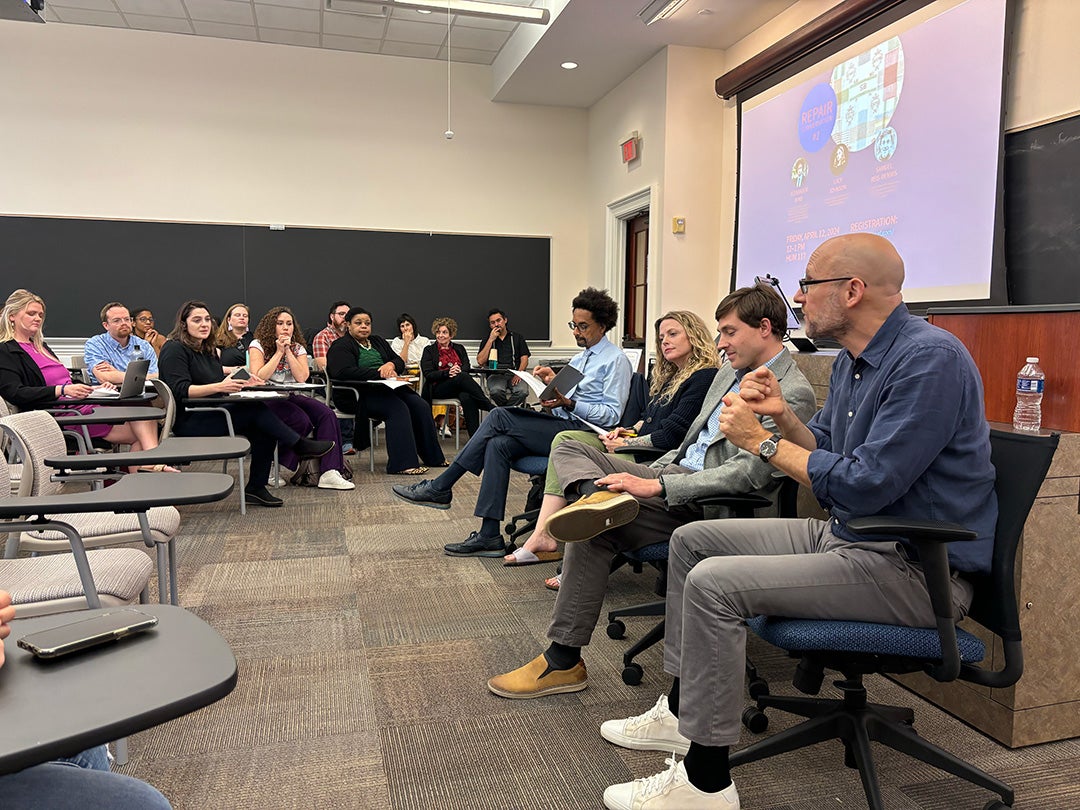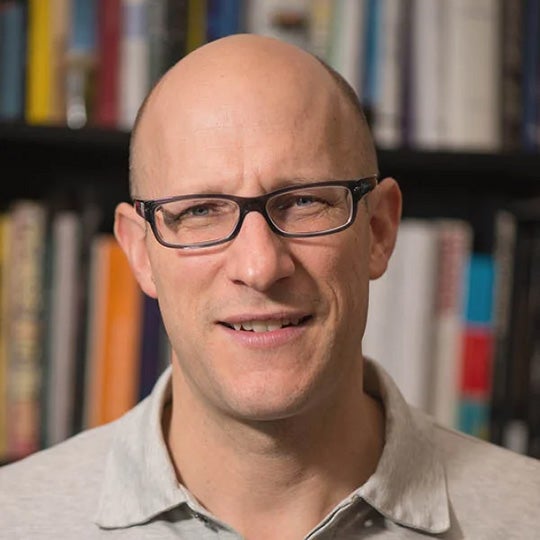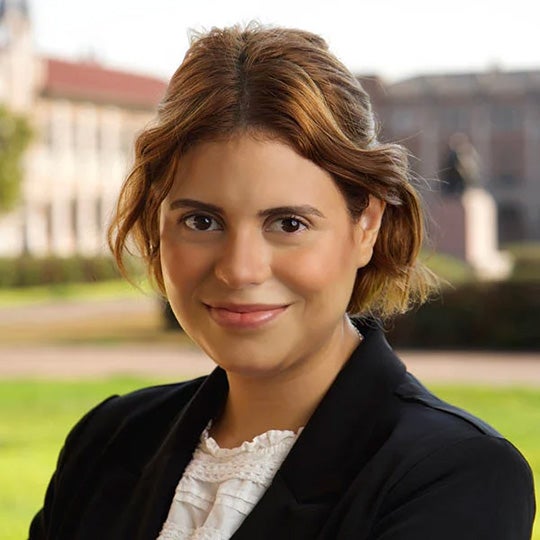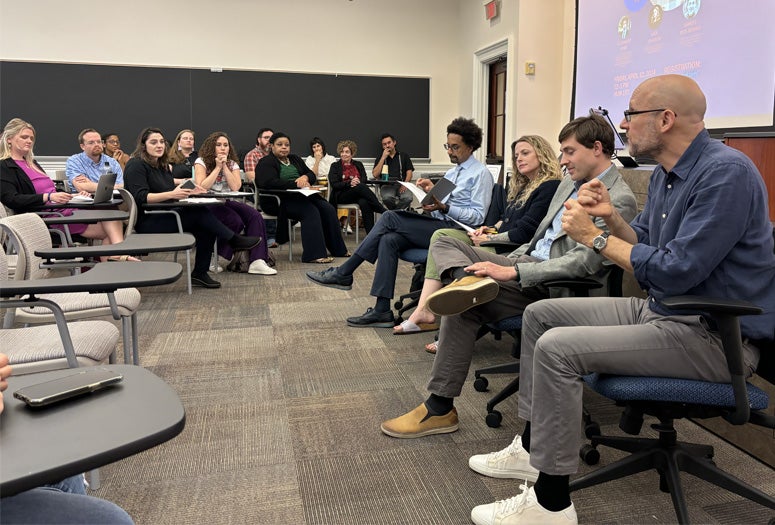
When the COVID-19 pandemic struck, the world looked to its scientists for a solution, and they raced to develop vaccines. Then it was social scientists’ turn to apply their expertise as vaccine rollouts were developed and managed. What happened next was surprising: Arguably the biggest challenge to protecting the world from COVID-19 was many people’s resistance to using vaccines at all. For Graham Bader, director of Rice University’s Humanities Research Center (HRC), this situation revealed the critical role of humanists in addressing the world’s pressing concerns.
“Scholars in the humanities are thinking about history, about beliefs, about ideology and values,” Bader said. “If you don’t have humanists working together with scientists and public officials — figuring out not just how to develop and distribute a vaccine, but how to understand why people would hesitate to use it and how to speak to them about it — then things begin to fall apart.”
This realization became particularly poignant for Bader when he was asked in spring 2021 to join the HRC’s faculty council, just as the center began to rethink its purpose and direction. The result of this introspection is a renewed HRC, which, working together with Dean of Humanities Kathleen Canning, has adopted the theme of “repair” through 2025.

Founded in 1987 as the Center for the Study of Cultures, the HRC has long been a hub for innovative and interdisciplinary research within the humanities and arts. Over the years, it has become an incubator for cross-disciplinary collaboration, engaging faculty, students and postdoctoral fellows in research that transcends traditional academic boundaries. Today, the HRC is a vibrant center that fosters dialogue not only within Rice but also with institutions across the Houston area and beyond. It has also become the home for postdoctoral scholars from humanities departments, programs and centers, providing them with space to work, meet and collaborate across fields.
“One of our central goals is to raise the visibility and impact of our scholarship and public engagement,” Bader explained. “We’re really trying to bring people together and connect our research to key issues in the world around us.”
The theme of repair, introduced by the HRC for the academic years of 2023-24 and 2024-25, is a reflection of this mission.
“To think about repair means to consider not just present conditions but past circumstances of things and systems that we recognize as broken,” Canning said. “Repair encompasses future aspirations — the prospect of remediation, refurbishing, restoration. It’s about more than fixing what’s broken; it’s about understanding the deeper causes of that brokenness.”

For Gabriela Garcia, the HRC’s associate director, the theme of repair represents a new chapter for the center. Having worked in humanities research centers at Northwestern University and Tulane University, Garcia brings a wealth of experience and a fresh perspective to Rice.
“We’re interested in embracing and contesting the concept of repair,” Garcia said. “It’s a way to facilitate conversations around what connects us most.”
This theme is being explored through a series of events, workshops, discussions and public lectures, including a keynote by acclaimed author and MacArthur Fellow Maggie Nelson. Known for her intellectually subtle and critically innovative works, Nelson will speak Sept. 20 in the Kyle Morrow Room at Fondren Library. Her lecture will invite the Rice and Houston communities to engage with the concept of repair, offering insights from her own experiences as a writer and scholar.
The HRC is also sponsoring a number of student and faculty initiatives that explore and expand on ideas of repair. One such project is “Agatha Babino’s Story: A Narrative of the Formerly Enslaved,” an exhibit at the Heritage Society organized by Dionne Babineaux, a Ph.D. student in history. The exhibit, which delves into Babineaux’s family history during and after enslavement, marks the second HRC-supported project she has undertaken, following her successful organization of a free screening of the short films “Beaumont’s Black History — In Moving Pictures” at Rice Cinema.
Another project, “Guadalupe Maravilla: Mariposa Relámpago” is being organized by Erika Holum, a Ph.D. student in art history. This interdisciplinary exhibition will offer the Rice community an immersive experience, highlighting the themes of illness and healing that are central to Maravilla’s work.
Additionally, the HRC has backed the “Writing to Heal: U.S. Latine Narratives on Mental Health” speaker series organized by Luziris Pineda Turi, which ties into her popular course on the same subject, and the “Memory Studies Reading Group” led by Claire Branigan and Mary Grayson Brook, which fosters transnational discussions on memory through monthly readings for advanced undergraduates, graduate students and faculty.
“It’s an exciting time to be at Rice and at the HRC,” Garcia said.
Learn more about the HRC here.

